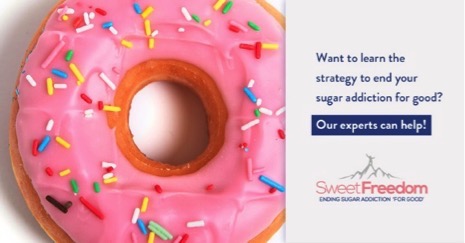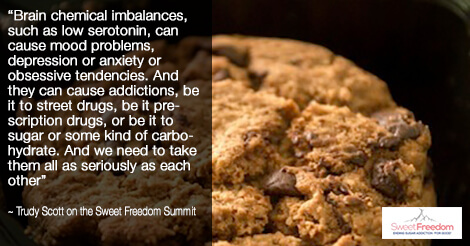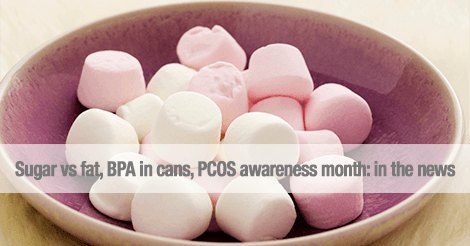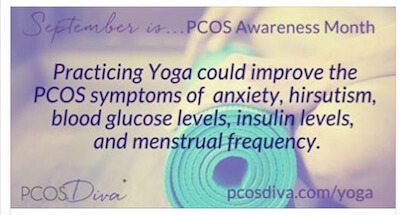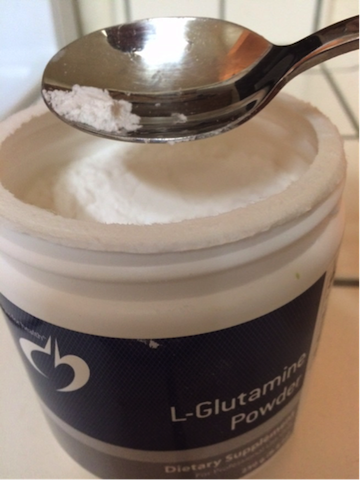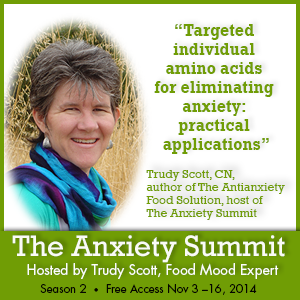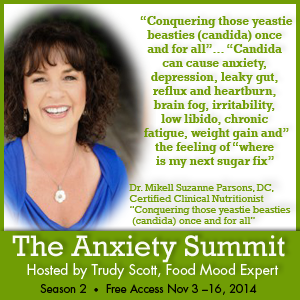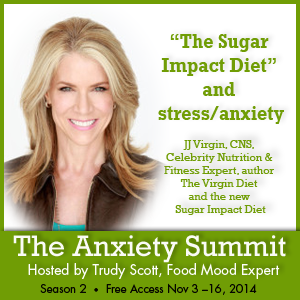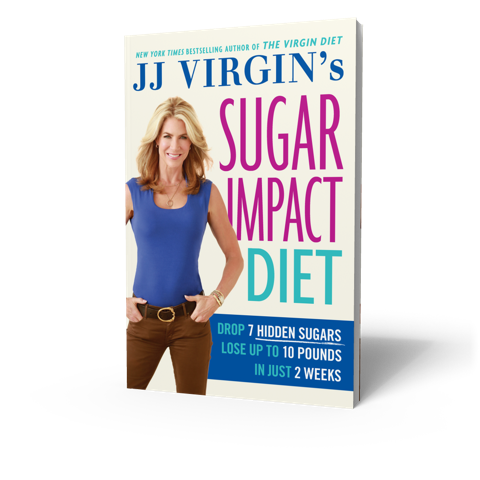It’s not common knowledge that brain chemical or neurotransmitter imbalances can cause sugar cravings as well as anxiety and depression. But there certainly is a big connection between stress eating, comfort eating, emotional eating and low levels of the brain chemicals serotonin, GABA and endorphins. There is a growing body of research supporting this connection.
Sharing this sugar craving-brain chemical connection and bringing it back to my expertise in anxiety and stress is something I don’t get to do often enough. So when I heard about the Sweet Freedom Summit that Sherry Strong was hosting, I immediately reached out to her and shared this brain chemical imbalance/addiction/mood topic in the hope she’d invite me to speak.
I was thrilled when she said she’d love to interview me and then doubly thrilled when she said our interview was SO good (I really enjoyed it too!) she’s decided to offer it as a gift to EVERYONE who signs up for the summit! Wow!
The Sweet Freedom Summit runs April 10-17 and I’m giving you a sneak peek to some of my interview today.
Sherry starts the sugar cravings/emotional eating/addiction discussion by asking what the connection is to brain chemistry imbalances and what evidence do we have that this is happening? Here are a few snippets from my response:
Say we’ve got a brain chemical deficiency of low serotonin, we are going to crave sugar and carbs in the afternoon and evening. And we will also have the low serotonin symptoms which are depression, the worry type of anxiety, the ruminating thoughts, the worry, the fear (these are the symptoms I experienced in my late 30s – I was also a chocoholic)
So you have this emotional aspect and the sugar cravings aspect when you’ve got these brain chemical imbalances.
And I just want to share something with you. This is a study done in 2002. And I’m going to just read a quote from this. The title is Evidence that Intermittent, Excessive Sugar Intake Causes Endogenous Opioid Dependence.
They’re saying that sugar can be as addicting as opioids and drugs. The goal of the study was to determine whether withdrawal from sugar can cause symptoms similar to opioid dependence. We’ve been hearing in the news how opioid drugs like OxyContin can cause dependence and we can have severe withdrawal symptoms.
What they’re saying is palatable food stimulates systems in the body that are implicated in drug addiction. And they felt that intermittent, excessive sugar intake might create a dependency and you get these withdrawal signs.
So they are saying that withdrawal from sugar is very similar to withdrawal from something like morphine or nicotine. And this is interesting because we know how addicting drugs can be. And we don’t realize that sugar can be as addicting.
Sherry had me repeat this statement to really bring the message home:
Brain chemical imbalances, such as low serotonin, can cause mood problems, depression or anxiety or obsessive tendencies. And they can cause addictions, be it to street drugs, be it prescription drugs, or be it to sugar or some kind of carbohydrate. And we need to take them all as seriously as each other.
Do you resonate with any of the above? Maybe the example I shared will be closer to reality for you:
Just think about the obsessive nature we have when we’re craving something. We’ll binge eat a box of cookies. And then we may even rush out and buy a second box to replace the box that we binge-ate to replace it before someone sees that we’ve eaten the first box. That sounds like the behavior of a drug addict to me!
We also cover the low GABA type of stress eating that we see with anxiety and low endorphins comfort/reward eating where you really LOVE certain foods (think a big bowl of ice-cream) – and which targeted individual amino acids to use for each brain chemical imbalance. This all means NO willpower is required and zero feelings of deprivation! Really! (and you get a mood boost too)
I hope you can join us at the online no-cost event – simply click here to register today. It runs April 10-17 and when you register you’ll get immediate access to my interview and some other cool sign up gifs. Please share with family and friends who you know can benefit from this information!
Two decades ago, your host, Sherry Strong, was completely addicted to sugar. She was obese, sick and depressed to the point of wanting to die. All of that changed when she removed sugar from her diet.
If you are struggling to give up sugar, are an emotional eater or stress-eater or even if you simply indulge periodically – whether a health professional, busy mom, athlete or career-driven person – this event can help you, finally, improve your health, your life, your mood and end those sugar cravings and addictions!
Got questions or feedback? Please share them in the blog comments below.
